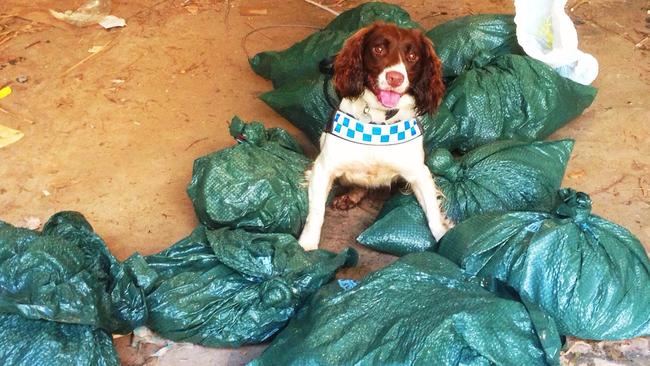Coffs Harbour drug dealers exposed to new police powers
Convicted drug dealers can now be searched without a warrant at Coffs Harbour following the passage of new rules which has alarm bells ringing. See what’s changed.
Coffs Harbour
Don't miss out on the headlines from Coffs Harbour. Followed categories will be added to My News.
Concerns have been raised about sweeping new powers which will allow police in Coffs Harbour to shakedown people convicted of serious drug crime - without a warrant - long after the offenders have served their punishment.
The Drug Supply Prohibition Order Pilot Scheme came into effect this week, and it will run in four police area commands - Coffs Harbour, Bankstown, Orana in the central-west, and the Hunter Valley.
The trial opens the way for officers to kick down the doors of a suspect’s home, search any car, plane or boat they are in, or search them in the street – all without the need for a warrant.
Police will have to apply to get a Drug Supply Prohibition Order (DSPO) issued for a person who has been convicted of a serious drug offence in the past 10 years.
An application for an order must be made to an authorised magistrate against an ‘eligible person’, and police must have reasonable grounds to suspect there is evidence of drug-related crime.

Further, any application for an order first needs to be authorised by a senior police officer with a rank of superintendent or higher.
The new powers have raised the ire of the Law Society of NSW and the state’s Council for Civil Liberties, which fear they go too far.
“There’s no question that high level drug dealers should be put out of business, however strong powers exist already for the NSW Police and courts to do just that,” society president Joanne van der Plaat said.
“The high level of secrecy involved in the application process and low threshold necessary for the police to obtain a Drug Supply Prohibition Order against an offender who’s already served their sentence, have the potential to erode the rule of law.

“Police already have the power to apply for search warrants in a closed court. The DSPO scheme lacks sufficient oversight to ensure it operates fairly.”
The society also questioned whether the new powers would be effective in curbing serious drug crime.
“The scheme will do nothing to aid rehabilitation, and may well do little to hinder high level drug dealers either,” Ms van der Plaat said.
“The best way to approach the drug problem is prevention.
“Two years, two months and two days ago, the NSW Government released the report of the Special Commission of Inquiry into ‘Ice’. It’s now time to implement the recommendations of this inquiry focusing on prevention and a truly effective health response.”
The Council for Civil Liberties, in an earlier statement on the scheme, noted the indictable quantity for many drugs is not high. For example, in the sale of MDMA, the amount is 1.25g, and amphetamine is 5 grams.
It has taken two years for the DSPO laws to pass through parliament, and it’s been speculated police will be keen to use their new powers as they tackle a spate of gangland crime in southwest Sydney.




